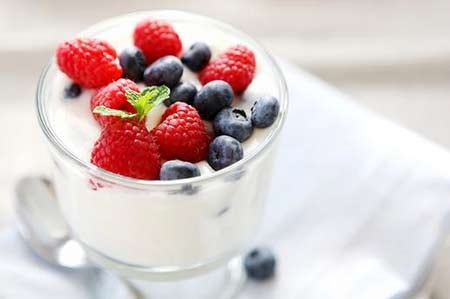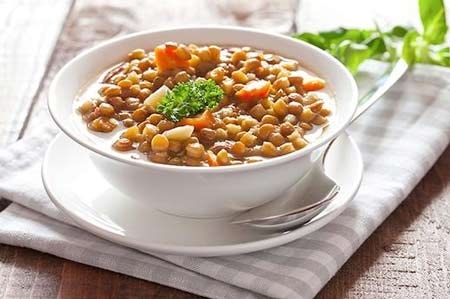Nutrition to boost immunity, prevent measles
When measles is raging, in addition to common preventive measures such as good personal hygiene, avoiding crowded places, etc., mothers need to pay attention to their children's diet to ensure nutrition and strengthen the immune system.
Malnutrition and poor immunity are risk factors for disease attacks. Below is a list of nutrients that should be supplemented for children at this time:
 |
1. Vitamins
Vitamins A, C, E, and D have been shown to help boost your baby's immune system.
Vitamin A: plays an important role in supporting skin cells, digestive tract and lung epithelial cells, forming the main "barrier" protecting children from external environmental factors. Foods rich in vitamin A include: carrots, kale, broccoli, squash, apricots, fish and sweet potatoes.
Vitamin C: found in strawberries, oranges, lemons, grapefruit, etc. helps increase the production of white blood cells and antibodies including interferon antibodies. Interferon covers the surface of cells to help limit the penetration of viruses.
Vitamin D: found in sunlight, egg yolks, fish oils, and vitamin D supplements. Consult your doctor about the recommended safe level for your child.
Vitamin E: stimulates the production of natural killer cells and B cells that help produce antibodies against bacteria. Vitamin E is abundant in nuts, vegetable oils and cereals.
2. Minerals and Omega-3 fatty acids
Zinc: Zinc is important for the development of white blood cells that help recognize and destroy invading bacteria and viruses. Zinc can be supplemented through foods including: beef, oysters, pork, poultry, yogurt, or milk.
Selenium: Selenium, found in abundance in shellfish such as oysters, lobsters, crabs and clams, helps white blood cells produce cytokines—proteins that help clear disease-causing viruses such as influenza from the body.
Iron: Like zinc, iron deficiency can lead to a weakened immune system, increasing the risk of infection and disease. Iron is found in red meat, tofu, cereals, and lentils.
Omega-3 fatty acids: found in flaxseed oil and fatty fish (salmon, tuna, mackerel) help increase the activity of white blood cells that kill bacteria. Consult your doctor about using omega-3 fatty acids in your baby's diet.
 |
3. Probiotic
Probiotics are found in many dairy products such as yogurt, and are healthy bacteria that help eliminate harmful bacteria from the intestines. Supplementing with probiotics helps boost children's immune systems.
4. Garlic
Although it is not easy for young children to eat garlic, mothers should try to add a little garlic spice to their children's food because garlic contains a lot of allicin, which helps protect children from disease-causing viruses.
 |
| Diet for children with measles |
If your child is unfortunate enough to contract measles, the following nutritional principles can help protect your child from serious complications of the disease:
- You should feed your baby a variety of fruits during the first 3 days of illness. Combine fresh fruits and fruit juices such as orange juice, lemon juice as well as drink plenty of water because at this stage, water supplementation is very important.
- After this period of eating a lot of fruits, the patient should eat soft foods, low in salt and spices, including fruits, whole grains, and light soups. Ideal fruits are watermelon, grapes, and grapefruit.
- Following the soft diet is a balanced diet containing foods that are good for children with lots of vitamins A, B complex and C.
- Parents should try to avoid foods that are high in fat, oil, and processed foods. Avoid drinks with stimulants and artificial sweeteners to help children recover faster.
According to dantri.com






